Camping with teenagers: how to make the trip enjoyable for all
As hormones rage and a yearning for independence grows, camping with teenagers can be tough, but it doesn't have to be an ordeal
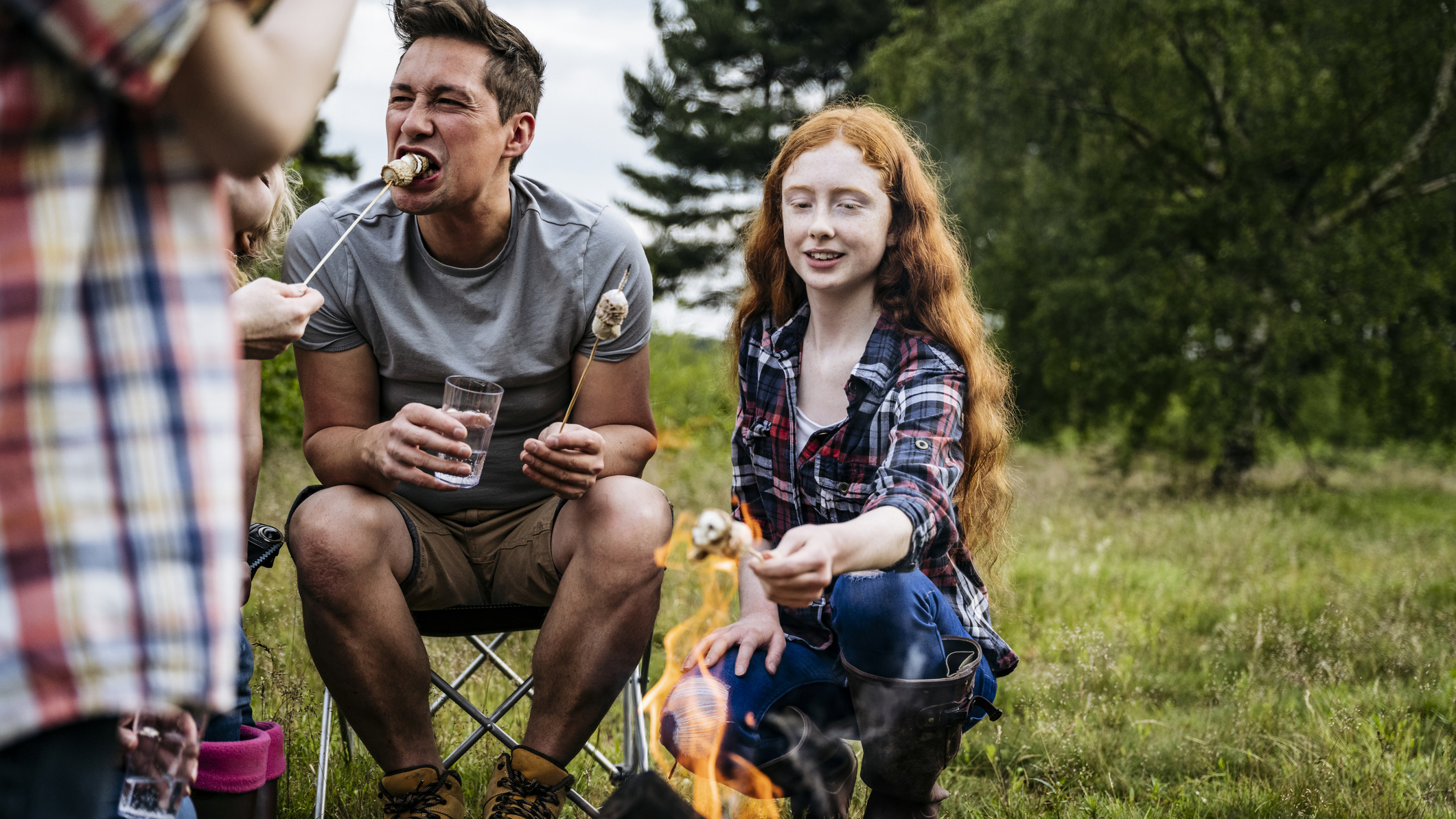
All the latest inspiration, tips and guides to help you plan your next Advnture!
You are now subscribed
Your newsletter sign-up was successful
Camping with teenagers can be fantastic and life-affirming, especially with some careful planning, a little bit of nous and a dash of patience. However, if you're not careful, it's an experience that can also go completely awry.
Of course, it'd be an unfair stereotype to suggest all teenagers would rather be at home in a dark room on their laptop than out exploring the backcountry. Many young adults absolutely love the great outdoors and need little motivation to get out there, especially if they've got a friend or sibling that they get on with along for the ride.
However, for some, the idea of spending an extended weekend with their parents in a family tent, sleeping under canvas and foregoing the comforts of home life, may not appeal initially. This is where your greatest parenting powers are going to be required in order to motivate such reluctant campers.
Do not fear, we are here with our expert guide, 10 tips for how to camp with teenagers. In many ways, the principles aren't hugely removed from how to camp with kids, though there are nuances. Let's get into it.
Meet the expert

An expert on product design, sustainability and the great outdoors in general, Lou has a huge passion for the backcountry. He patiently introduced the wilderness' wonders to his kids and now shares his hard-won knoweldge on camping with teenagers.
Today's best deals
1. Start close to home
- Shorter trips closer to home reduce the stress for both parents and teens
- Allow your teens to bring everything that they deem to be essential
Introduce teenagers to camping with small steps. Avoid overwhelming teens with an ‘epic’ 10-day wilderness expedition for that first trip. Start with a 3-day weekend at a park close to home. In addition to the necessary camping equipment, let the teenagers bring a favourite pillow, more than enough clothes, and other gear they think is ‘essential’. Shorter trips help reduce the stress of new experiences and let them learn new skills and gain confidence in their abilities at a realistic rate.
2. Share the planning
- Give your teens ownership over the trip
- This will ensure they have an interest in the overall experience
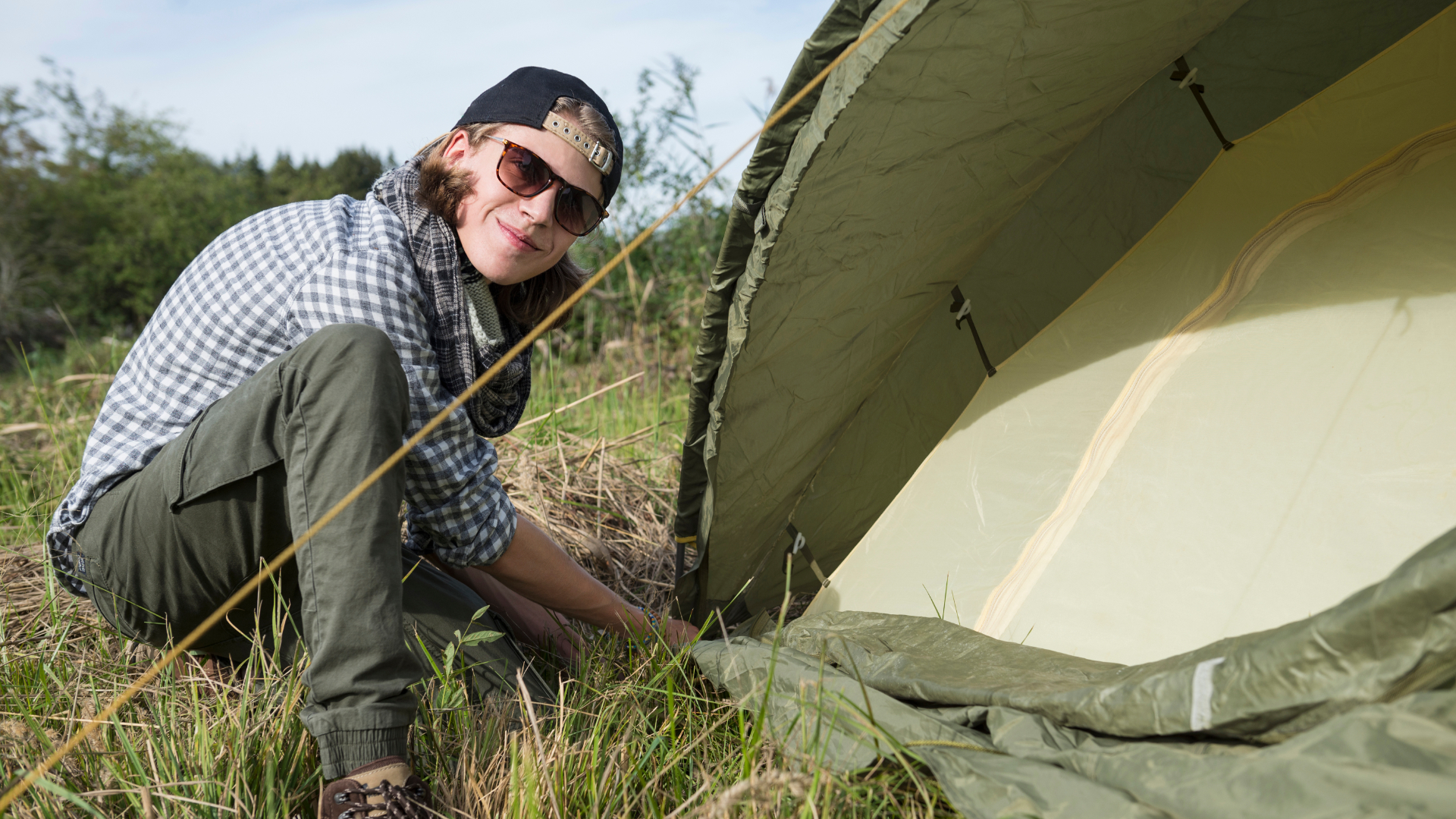
Give teens a role in determining where to camp, when to go, and what’s considered ‘must-have’ gear. Start with options and help them narrow the choices to fit their interests and curiosity. By taking ownership of these decisions, the teens arrive at the campsite ready to shift from reading a website description to exploring the landscape in person. Getting them involved can turn apprehension into smiles, laughter, and high fives. It also means they can’t blame you for everything if things go awry.
3. Give them a job
- Teens with organization skills will find a sense of pride and ownership when setting up camp
- Those who want to burn off more energy can do a recce of the camp facilities
- Give your teens assignments that push them out of their comfort zone a little
When camping with teenagers, ask one with organisational skills to set-up the tent and arrange the sleeping pads, sleeping bags, backpacks, water bottles, and headlamps. There’s a sense of pride in finding a place for everything. For teenagers who prefer less structured instructions, send them out to create a map of the camp. Where are the bathrooms? Where can we fill water bottles? Where can we find wood for a campfire? Just as important as setting up camp, these tasks keep teens from getting bored waiting for mom and dad to do the work.
All the latest inspiration, tips and guides to help you plan your next Advnture!
As an alternative, consider giving them an assignment that pushes them out of their comfort zone. It’s a great way to learn and build confidence with a new activity like camping.
4. Screen time
- Utilize your kids' devices and encourage them to use apps that enhance the camping experience
- Many campgrounds don't have brilliant signal, so teens will soon look for something else to do anyway
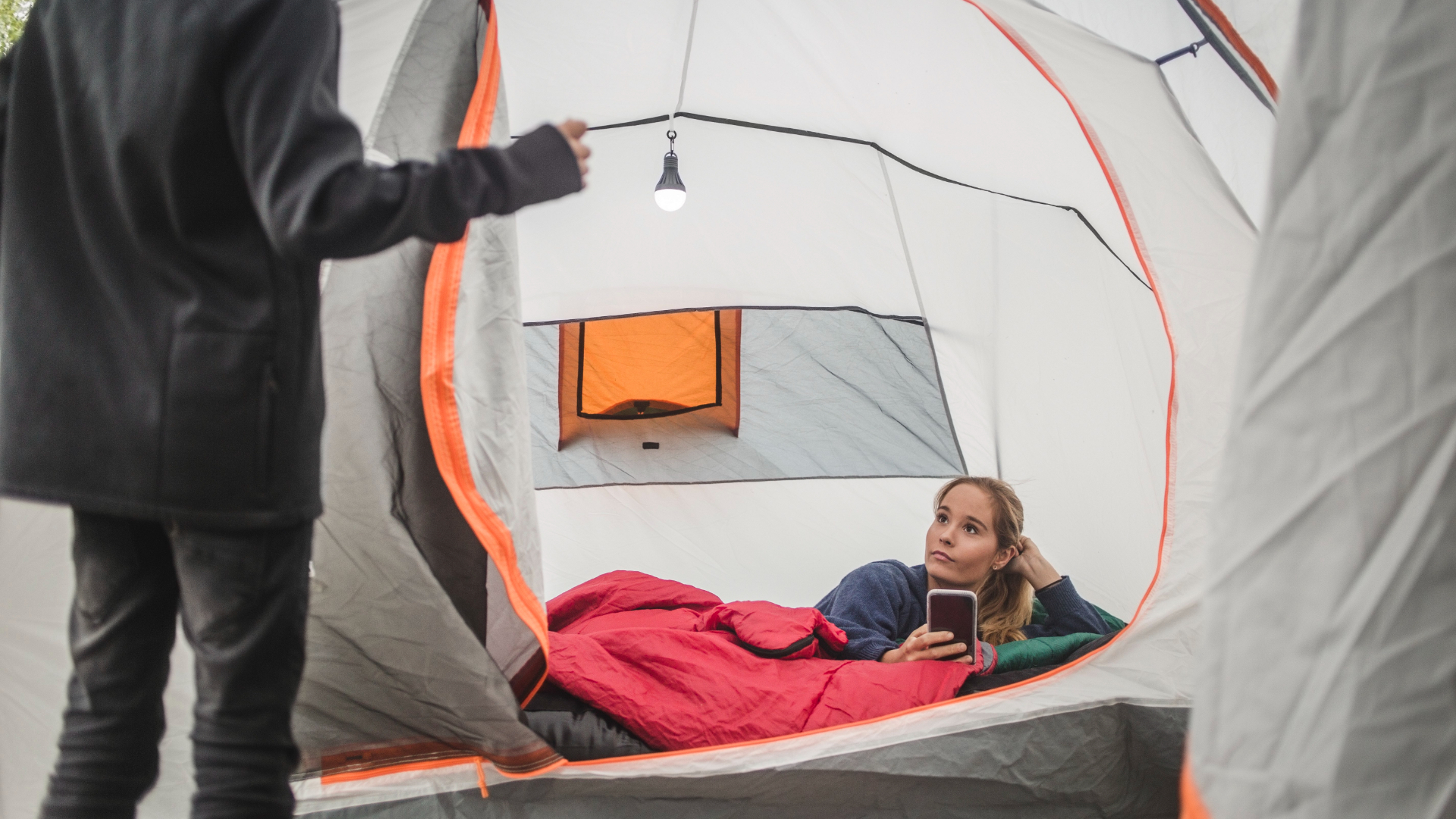
Taking a teenager’s electronic device away is like depriving them of oxygen. Instead of locking smartphones and tablets in the glovebox, use the electronics to your advantage. Ask the teens to look for camping apps and other apps that will improve their experience – for example, apps that help you navigate, identify plants, decipher animal tracks or follow stars across the night sky.
There’s one more element that’s in your favour. In many parks, Wi-fi access and signal strength are limited. Frustrated because they can’t play games or watch a movie, teens will look for something else to do.
5. Pack plenty of supplies
- Bring plenty of food and treats
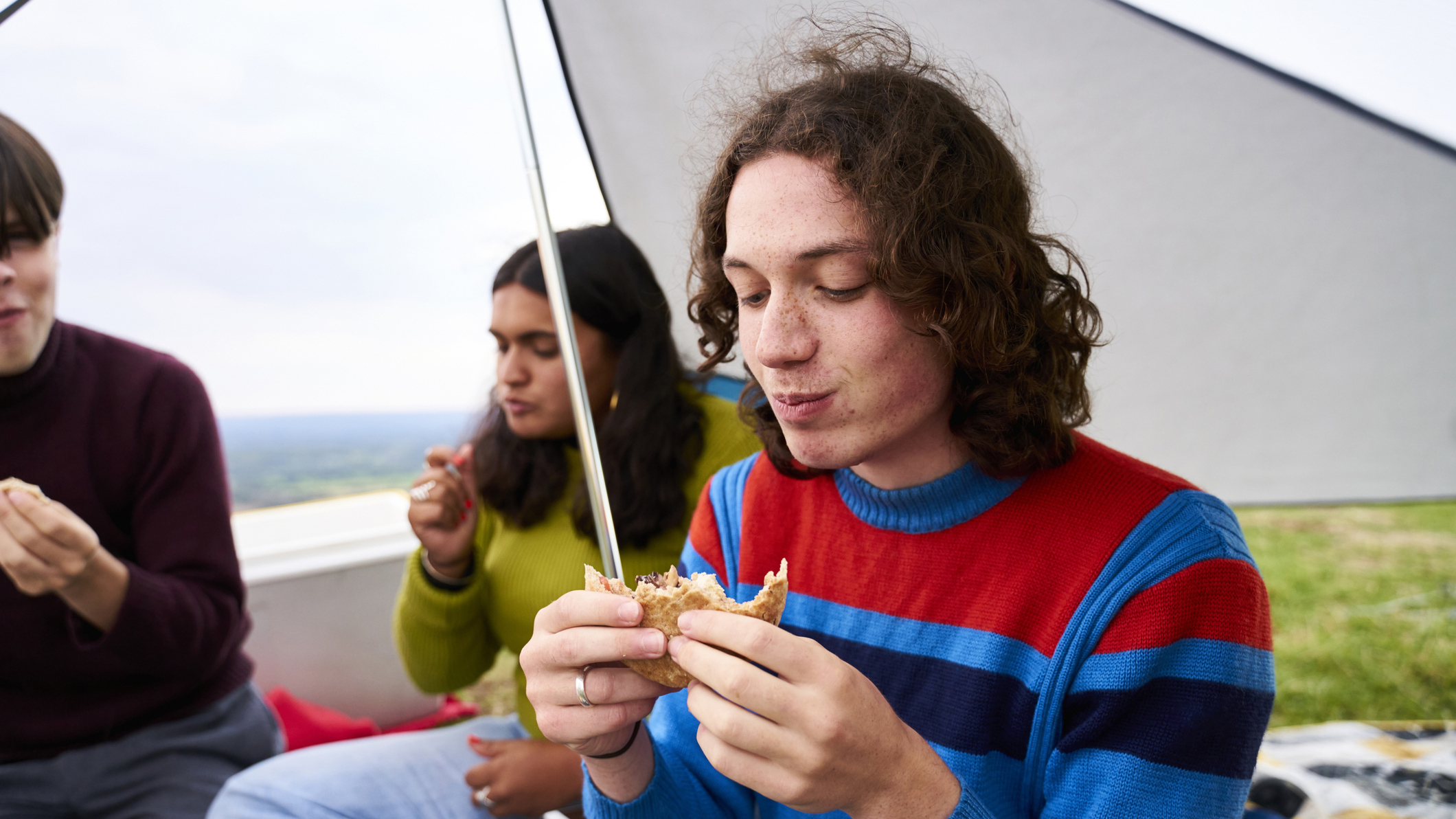
A hungry teenager is an extra-moody teenager. The last thing you need is your kids getting hangry. Bring lots of food, and include some treats in the camping cooler – make it feel like a holiday.
6. Bring a friend
- Inviting a friend can make a teenager's camping trip much more fun
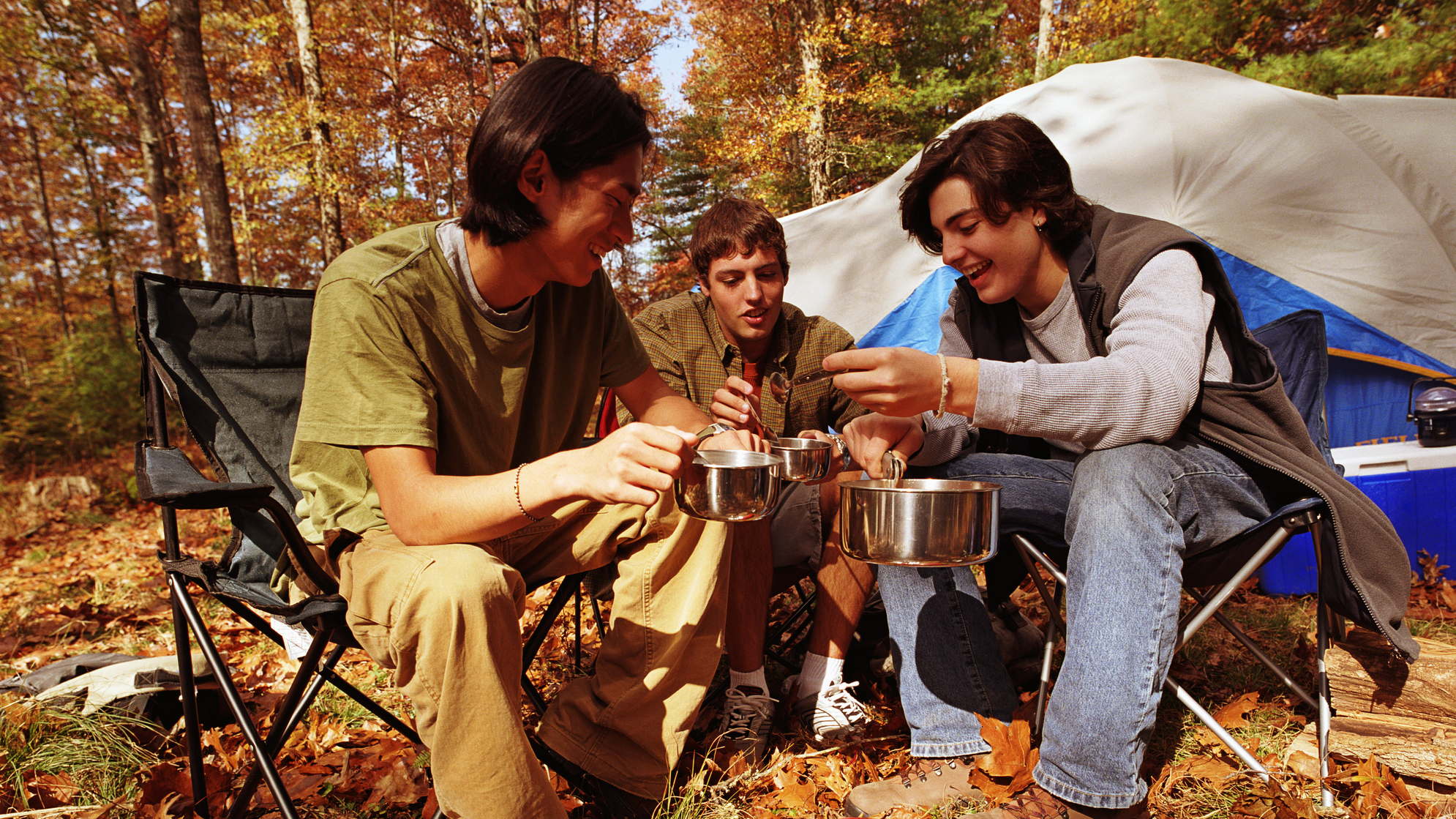
Adolescence is a time of change that can be both fun and challenging for parents and kids. Teenagers push for independence and parents pull back, worried about their progeny trying to go too far, too fast. The best way to solve that conundrum is to invite a friend along with you. Better yet, set-up a separate tent for them to sleep in. Kids will stay up late debating whether or not they like camping and parents can get a good night’s sleep.
7. Leave no trace
- Allow your teenagers freedom to explore, within reason
- Teach them to respect nature and follow the leave no trace principles
Parks have hiking trails to follow. Encourage them to feel comfortable breaking off the established trails and climbing to the top of the next hill to see what they can see. Keep them safe in dangerous or questionable terrain, but encourage exploration, which will give them a sense of control over their own experiences. Teach them to respect Mother Nature and practice Leave No Trace principles.
8. Build a campfire
- A campfire's flames mesmerize kids and teens alike
- Gathering kindling, building the campfire and toasting marshmallows are all memorable activities
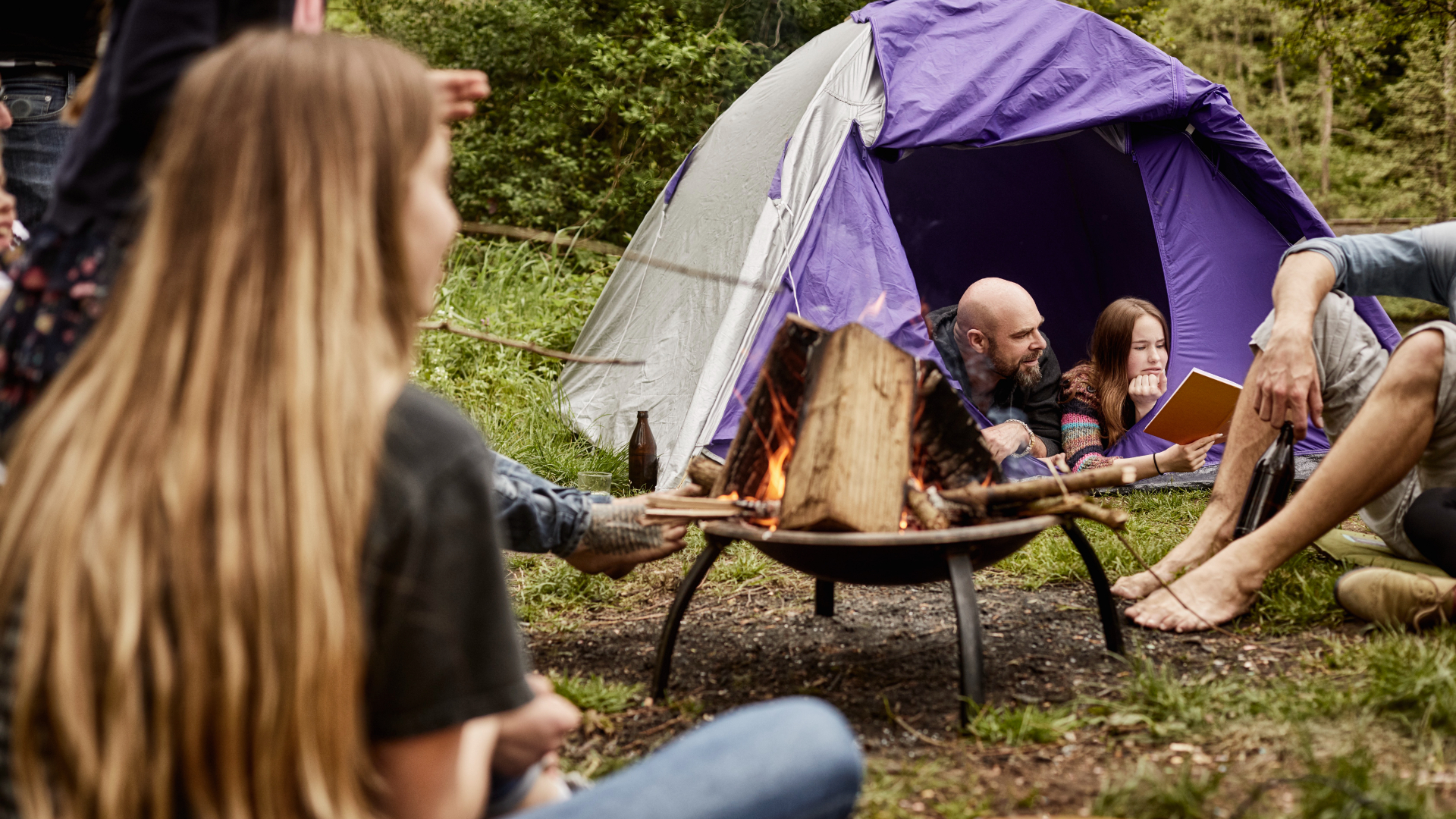
There are good and bad sides to campfires but there's no denying that flickering flames of orange, red, white, and blue mesmerise kids and teenagers. Time spent gathering dead wood, learning how to arrange the wood, and striking a match is a fundamental right of passage for every camper. Feeding the fire leads to roasting marshmallows, making s’mores, telling ghost stories, and building memories. If there’s anything about the first camping trips that inspire a ‘can we do that again?’ request it’s building a roaring campfire.
9. Have a plan B
- Have a plan B in case of adverse weather conditions
Pay attention to the weather. Unseasonably cold temperatures, hard rains or fierce winds that keep everyone stuck inside a small tent can dampen enthusiasm for future trips. Gauging the group’s desire to stay or go is a skill worth learning early.
10. Make the most of it
- Make the most of every moment you get with your kids in the great outdoors
- With any luck, they'll be inviting you into the backcountry next time
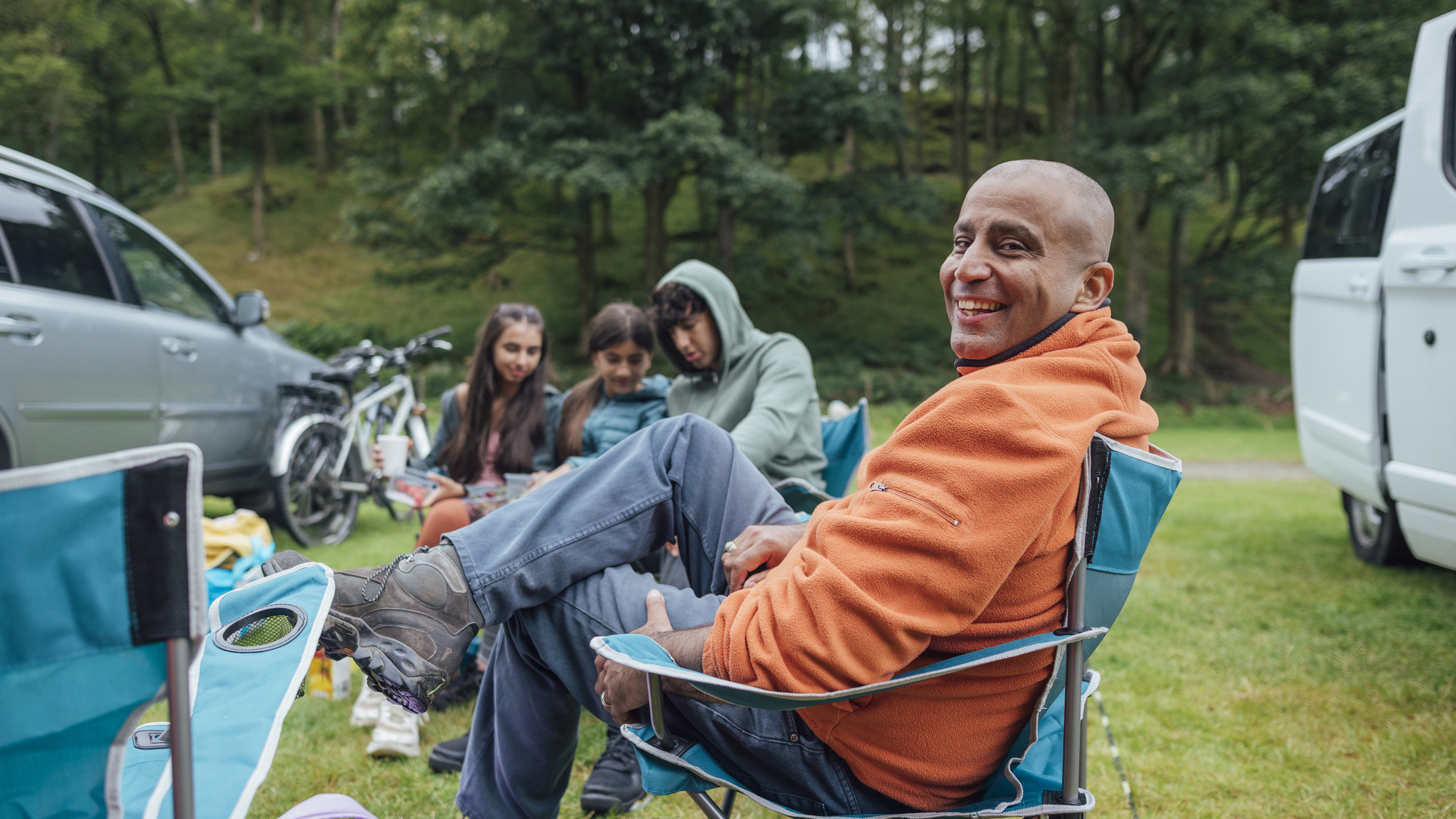
Time goes past scarily fast. Relish time spent outdoors with your kids while you can, and don’t ruin it unnecessarily by getting upset or mad when they act all teenagery. Give them space, let the mood pass, then move on. Before you know it, if you play your cards right, they’ll be taking you camping and showing you their newfound favorite wilderness places.
A journalist specializing in outdoor recreation, Lou has covered product design innovations, participation trends and environmentally sustainable manufacturing for over 20 years. On the other hand, he’s had some less than successful outdoor adventures: once, completely spent after a hard day on the trail, he managed to set a vintage MSR Whisperlite stove ablaze before accidentally kicking the burning contraption into a lake. A published author, his book about invasive fish threatening the Great Lakes watershed will be published in 2021. craftedwords.com
